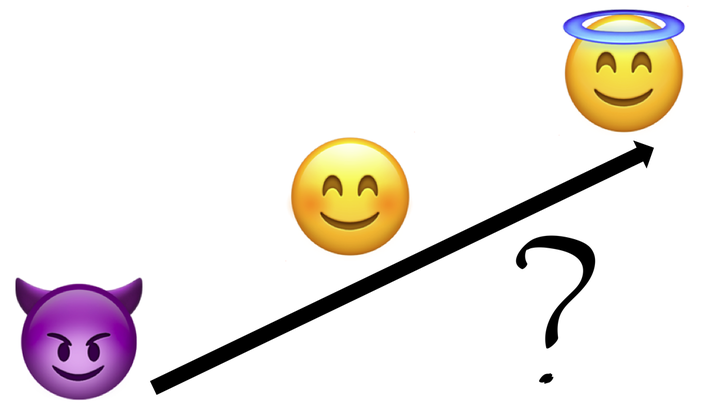Moral Improvement

What Are the Causes and Consequences of Moral Improvement?
Maximizing and equitably distributing well-being for the greater good requires that people suppress their selfishness and make an effort for the benefit of others. Although moral cultivation is a central goal of many religious and philosophical traditions, psychological science has little to say about what moral improvement looks like in practice. Thus, I have recently turned to questions about the causes and consequences of moral improvement.
So far, my research suggests that people don’t particularly want to be more moral (e.g., honest, compassionate, and fair); instead, they overwhelmingly prioritize goals to become less anxious and less depressed (Sun & Goodwin, 2020, Psych Science). I wondered if this might be because people believe that becoming more moral would reduce their well-being. Actually, my follow-up studies showed that people actually believe that becoming more moral—either by achieving self-defined moral goals (Sun et al., 2024, Journal of Personality), or by improving on prototypical moral virtues (e.g., compassion, honesty, fairness; Sun & Berman, 2025, PSPB)—would improve their personal well-being. However, they believe that non-moral improvements (e.g., becoming more intelligent, more efficient, and less anxious) would improve their well-being to a relatively greater extent than would moral improvements (Sun & Berman, 2025, PSPB). These results clarify the nature of the tradeoff that people perceive between well-being and morality and show that people prioritize well-being over morality in the context of self-improvement.
Current and future directions. Real-life ethical decisions often involve multiple moral concerns. For example, using the Day Reconstruction Method (DRM), my graduate students and I found that about 50% of peoples’ everyday situations involved opportunities for expressing two or more moral virtues (Hardin, Zhang, & Sun, in progress). Moreover, a growing literature demonstrates that there are situations in which different moral concerns can come into conflict. For example, people often feel a tension between being honest versus kind during difficult conversations. If moral tradeoffs are inherent and pervasive, such that improving on one virtue generally worsens another virtue (e.g., becoming more honest causes a person to become less kind), then this would suggest that it is not possible to become more moral in all ways.
To assess the extent to which moral tradeoffs pose a challenge to the possibility of overall moral improvement, recent lab projects led by my graduate students ask whether people perceive a general tradeoff among virtues. First, we conducted four studies examining people’s beliefs about how increasing various virtues or vices would affect other virtues or vices (Hardin, Scott, & Sun, in prep). In contrast to the focus on tradeoffs in the moral psychological literature, we found that people generally believe that increasing one virtue would increase other virtues and decrease vices (and that increasing one vice would increase other vices and decrease virtues). To explore possible virtue tradeoffs in concrete everyday situations, we used the Day Reconstruction Method. We found that people experienced virtue tradeoffs 31.7% of the time when at least two virtues were relevant (Zhang, Jacobson, Hardin, & Sun, in prep).
Together, these studies suggest that while virtue tradeoffs can occur in specific situations, virtues are typically in harmony in everyday life. Moreover, the DRM study showed that even when people perceived tradeoffs, they were sometimes able to transcend them by finding a way to show high levels of both virtues (rather than prioritizing one virtue over the other or compromising by showing middling levels of both virtues)—and they were most satisfied with their decision when they managed to do so. This points to an intriguing future direction: Can we develop an intervention to help people understand how virtues can complement one another and be integrated to overcome apparent tradeoffs?